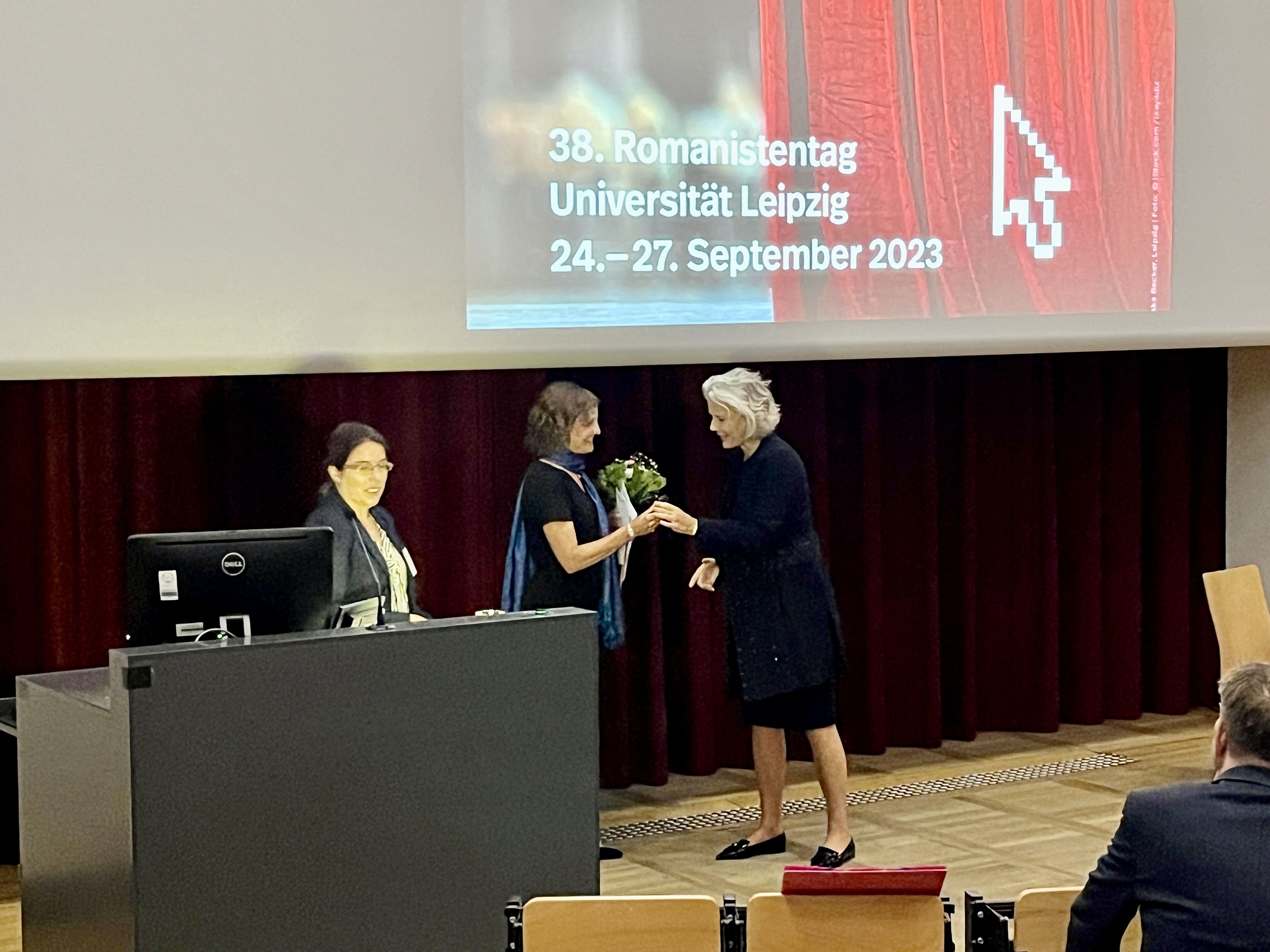
Literature that broke the ground for independence
Elise Richter prize for Anne Kraume: The Deutscher Romanistenverband (DRV) recognizes the Konstanz-based literary scholar for her habilitation thesis on the transatlantic connections in the works of fray Servando Teresa de Mier (1763-1827) on the eve of Latin American independence.
The Deutscher Romanistenverband (DRV) awarded this year's Elise Richter prize to Anne Kraume, a professor of Romance literatures at the University of Konstanz. The jury praised Kraume for her trailblazing work examining fray Servando’s work against the backdrop of transatlantic cultural exchange: "By taking this approach, she provides a particularly impressive example of the interwoven history of European-American genres."
Anne Kraume says, "I am very happy to accept the Elise Richter prize and the recognition of my work that comes with it; and I am especially happy, because the literary exchange between Europe and Latin America are a topic that is also of particular importance in our globalized present –and this is why I would really like to continue my work in this area.”
Professor Kraume was presented the prize, worth 2,000 euros, at the opening ceremony for the 38th Deutscher Romanistentag convention at Leipzig University on 24 September 2023. Her book on literature and independence, "Literatur und Unabhängigkeit. Transatlantische Verflechtungen bei fray Servando Teresa de Mier (1763–1827)" was published on 2 October 2023 in the series Latin American Literatures in the World by the publishing house De Gruyter.
Literary strategies and political goals
In her habilitation thesis, Anne Kraume writes a transatlantic cultural history of relations between Europe and Latin America at the end of the 18th and start of the 19th century. She uses the example of the Dominican friar fray Servando Teresa de Mier in the colony "New Spain" (now Mexico) who lived from 1763–1827, to demonstrate how the works of Latin American authors broke the ground for the region's political and literary independence. Fray Servando sparked a theological as well as a political scandal by delivering a 1794 sermon in which he indirectly, but nonetheless clearly, questioned the legitimacy of Spanish colonial rule – with the viceroy of New Spain in attendance. Banished to ten years' imprisonment in a Spanish monastery, from which he escaped several times, fray Servando published his first major work in London in 1813: a historiographical treatise on the independence of the colony of New Spain, which was far from being achieved at that time. When he later returned to his homeland, the events of his exile in Europe provided the content for his second work, an autobiography written between 1817 and 1820. In her study, Anne Kraume examines the literary strategies that fray Servando employed in these two works to lend plausibility to his political cause, the pursuit of independence from Spanish colonial rule.
"In the case of fray Servando, it is especially striking that, to serve his own purposes, he alters, and in a sense subverts, canonical genres such as the historiography and the autobiography," Kraume explains. "Literary genres can also be understood as culturally embedded infrastructures whose purpose is to formally secure certain content and make it accessible to a broad readership," adds Anne Kraume, who also is part of current research in the field of infrastructures at the University of Konstanz. "These infrastructures, as in the case of fray Servando, often have great potential for transformation – and this is true on two levels. First of all, the infrastructures themselves are constantly undergoing change, and secondly, this adaptation serves the purpose of causing political or cultural upheaval or change."
Anne Kraume interprets the author to be a “border-crosser” in several ways: fray Servando stood on the threshold between the colonial era and independence; furthermore, he moved across geographical borders between Latin America and Europe throughout his life, and finally, he also crossed genre boundaries by further developing canonical forms. As Anne Kraume sees it, fray Servando's work not only broke the ground for political independence from the Spanish crown, but also for literary independence from traditional European patterns.
About the Elise Richter prize:
The award from the Deutscher Romanistenverband (DRV) is named after Elise Richter (1865–1943), the first woman to complete a habilitation (postdoctoral qualification) at the University of Vienna (1905). Since she was Jewish, Elise Richter was persecuted by the Nazi regime and murdered in the Theresienstadt concentration camp in 1943. Every two years, the Elise Richter prize recognizes outstanding doctoral and habilitation theses. This took place for the 13th time in 2023.
Key facts:
- Anne Kraume, a professor of Romance literatures at the University of Konstanz, was awarded the Elise Richter prize of the Deutscher Romanistenverband (DRV) for her habilitation thesis on the transatlantic connections in the works of fray Servando Teresa de Mier (1763-1827) on the eve of Latin American independence.
- Kraume was presented the prize, worth 2,000 euros, during the Deutscher Romanistentag convention at Leipzig University on 24 September 2023.
- Anne Kraume's book on literature and independence, "Literatur und Unabhängigkeit. Transatlantische Verflechtungen bei fray Servando Teresa de Mier (1763–1827)" was published on 2 October 2023 by De Gruyter.
